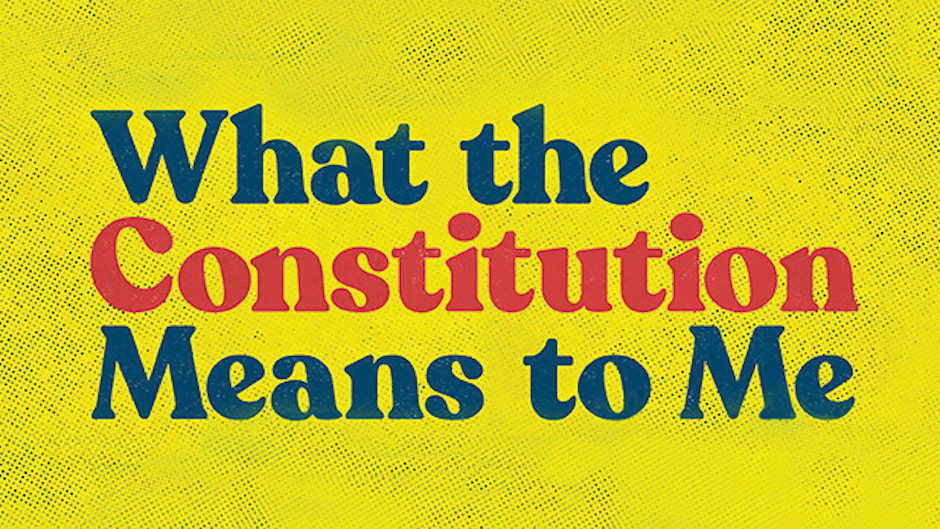Recently, a special performance of the Pulitzer Prize finalist tragedy-told-as-comedy commemorated the 20-year anniversary of the murders of three Colorado girls and the efforts of their mother, Jessica Lenahan, to find justice. “Tonight showed us both the incredible majesty and cruelty of the law,” said Miami Law Dean-designate Anthony E. Varona. The evening was capped by an event at Sardi’s, the famed 1927 theatre district watering hole.
Professor Caroline Bettinger-López has been lead counsel for Lenahan, as well as White House Advisor on Violence Against Women under former Vice President Joe Biden. Bettinger-López is a professor of law and director of Miami Law's Human Rights Clinic.
Q: You have a long relationship with Jessica Lenahan. How did it start?
I got involved in the case Town of Castle Rock v. Jessica Gonzales in 2004 when I was a baby attorney at the ACLU Women’s Rights Project. I was asked to coordinate the friend of the court briefs to the Supreme Court, to support Jessica’s lawyer’s arguments in the case. We ultimately submitted nine amicus briefs from 150 organizations and individuals across the country. It was through that process that I got to know Jessica and her family.
Q: What have been the highs and lows of Lenahan's case?
The Supreme Court’s 2005 decision in Castle Rock lives in infamy. Writing for the majority, Justice Scalia said: “we do not believe these provisions of Colorado law truly made enforcement of restraining orders mandatory.” Justices Stevens and Ginsburg vigorously dissented. How ironic that Justice Scalia, who prided himself on being a textualist, suddenly did not think that the “shall” in Colorado’s mandatory arrest law constitutionally required the police to enforce restraining orders.
The decision was devastating for Jessica and sent shock waves in the women’s and civil rights communities. What’s the meaning of a restraining order, everyone asked, if it’s not worth the piece of paper on which it is printed? When Jessica first insisted that something more must be done, we lawyers thought “the Supreme Court is the end of the line. Nothing else can be done in this case.”
But when we shifted paradigms and thought of alternative pathways to justice for Jessica, we came up with an idea: shining a light on how out of touch the Supreme Court’s decision was by bringing Jessica’s case to an international human rights tribunal. We could seek redress for Jessica and reframe domestic violence from its typical presentation in our society as a “private matter” to frame it as a societal epidemic that demands responsiveness from our government – local, state, and federal.
We brought the first international human rights case against the United States on behalf of a domestic violence survivor. We brought Jessica Lenahan (Gonzales) v. United States of America before the Inter-American Commission on Human Rights, which hears cases against all 35 countries in the Americas.
In 2011, the Commission issued a landmark decision in Jessica’s case, finding that the U.S. government was responsible for human rights violations against Jessica and her children. They found grave failures to protect the children’s lives, and they also underscored that when the government fails to protect domestic violence, it is a form of sex discrimination, since domestic violence so disproportionately affects women.
Q: How did the Broadway night come to happen?
The Miami Law Human Rights Clinic has been involved with Jessica’s case for nearly a decade. We have always tried to find ways to communicate her story and the message that freedom from domestic violence is a fundamental human right, across different audiences and outside the law. For instance, we worked with filmmakers to create the documentary Home Truth about Jessica’s life and case.
In February, my colleague Don Papy came into my office with a copy of the New Yorker in his hand. “Jessica’s case is on Broadway!,” he exclaimed. Two months later, Jessica and I were in New York City meeting playwright Heidi Schreck. And then, on June 20, Heidi generously dedicated her performance of the play to Jessica, to commemorate the tragic 20-year anniversary of her daughters’ deaths that month.
It was a wonderful feeling for me to sit on stage for a post-play talk-back alongside Jessica Lenahan, Heidi Schreck, Oliver Butler (the play’s director), and Carol Jenkins (ERA Coalition) and talk about the connection between the play, Jessica’s case, and why we so desperately need the Equal Rights Amendment.
Q: Speaking of the ERA, what’s next for Jessica?
Jessica has become a spokesperson for the Equal Rights Amendment Coalition and Fund for Women’s Equality, which is working to get the Equal Rights Amendment passed. Turning her tragedy into forward-looking activism has been empowering for Jessica. And Heidi Schreck and Oliver Butler from What the Constitution Means to Me have also made the ERA their target: as they said during the talk-back on June 20, they hope that will be the most concrete change that comes out of their Broadway hit.
More on the Human Rights Clinic

